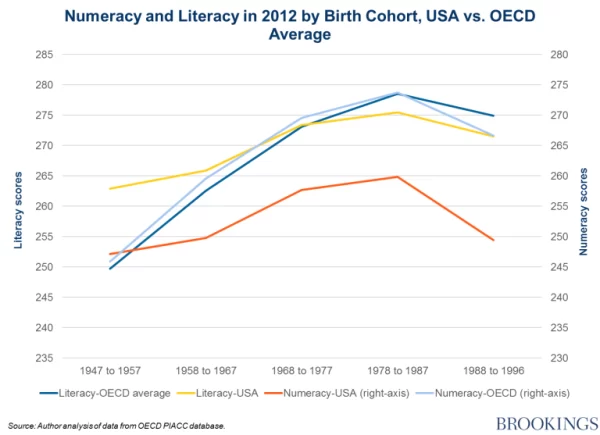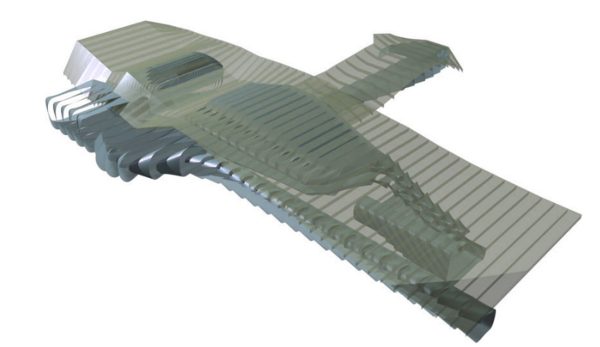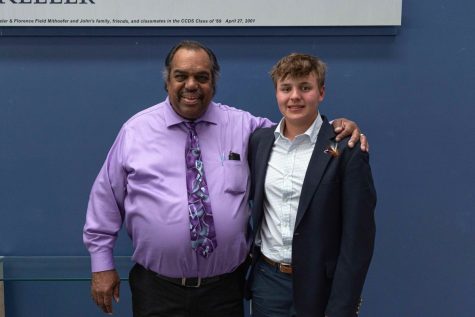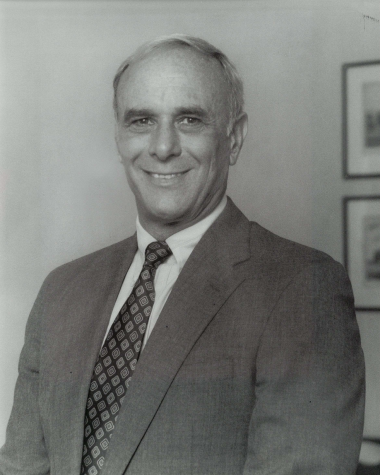Walter F. Mondale – Life and Legacy
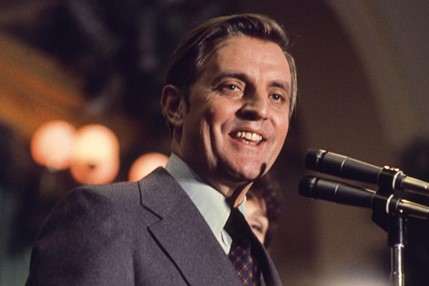
May 8, 2021
The 42nd Vice-President of the United States (1977-1981), Walter Mondale, recently passed away on April 19th, 2021 at the age of 93 in his home in Minneapolis, Minnesota. He is the first former Vice-President to pass away in three years, with the last being the death of former President George H.W. Bush in 2018, who served as former President Ronald Reagan’s Vice-President from 1981 to 1989. Walter “Fritz” Mondale witnessed some of the most important events of the 20th century in America. He served in the Korean War, replaced outgoing Senator and former Vice-President Hubert Humphrey, served as former President Jimmy Carter’s vice-president from 1977 to 1981, was the Democratic nominee for President in 1984, and much more. Mondale’s tenure in office “defined the modern Vice-Presidency, elevating the position into a true partnership with the President.”
Walter Frederick Mondale was born in the winter of 1928 at his home in Ceylon, Minnesota to Theodore Sigvaard Mondale, a Methodist minister, and Claribel Hope Mondale, a music teacher. Ceylon describes itself as “The Biggest Little Small Town in Minnesota”. When Mondale was still very young, his family moved around Minnesota because of his father’s job as a minister. His father’s political beliefs were rooted in his faith, and politics were regularly discussed in the Mondale household. The Christian principles of using one’s wealth to help the poor greatly influenced those beliefs and began young Walter’s journey towards his more liberal ideas. In high school, he outshone most other students athletically and earned the nickname “Crazy Legs” due to his skills at basketball, track, and football. His interest in politics and government were also apparent through his founding of a political club and winning elections as class president. In 1946, Mondale was accepted to Macalester College. In college, he listened to an esteemed member of the Democratic Party, former Vice-President Henry Wallace, speak on campus. He admired the progressive policies of Wallace and Wallace’s former boss, former President Franklin Delano Roosevelt. In 1947, Mondale became especially captivated by the speaking skills of the young Minneapolis Mayor Hubert Humphrey. In 1948, Mondale handed out leaflets and planted yard signs to help Humphrey win the Senate race that year against incumbent Republican Senator Joseph Ball. After Humphrey’s victory, Mondale happily joined him in Washington where he worked as national secretary of the SDA. In 1950, Mondale returned to Minnesota to attend the University of Minnesota. At the outbreak of the Korean War, he enlisted in the army and was stationed at Fort Knox in Kentucky. He returned to Minnesota once more after that to study at the University of Minnesota Law School. He would practice law in Minnesota until 1960.
In December 1955, Mondale married Joan Adams, with whom he would have three children. In 1959, the Mondales moved to a new district where Mondale planned to run for State Senate. Instead, he received an appointment to Minnesota Attorney General from Governor Orville Freeman, a man whom Mondale had worked closely with on Hubert Humphrey’s 1948 Senate campaign. In 1964, President Lyndon B. Johnson chose Senator Humphrey as his running mate. After their landslide victory, Minnesota Governor Karl Rolvaag appointed Mondale to Humphrey’s old Senate seat. On December 30th, 1964, Mondale was sworn in as the junior United States Senator from Minnesota. While in the Senate, he developed a reputation for level-headedness and professionalism. Mondale comfortably won reelection to the Senate in 1966, a year that was especially favorable to Republicans, making it all the more impressive that a progressive Democrat like Mondale could win in a swing state like Minnesota. Some of Walter Mondale’s proudest achievements came during his time in the Senate and helping Johnson and Humphrey pass Johnson’s “Great Society” legislation. The Fair Housing Act of 1968 was the achievement that Mondale would be proudest of after he left the Senate. During the 1968 election, Mondale agreed to co-chair Vice-President Humphrey’s unsuccessful campaign for President against former Vice-President Richard Nixon. The messy election of 1968 became a major embarrassment to the Democratic party, so Mondale decided to return to his Senate seat and stay out of national politics for the foreseeable future.
Everything changed when, in 1976, a little-known former Georgia Governor named Jimmy Carter clinched the Democratic nomination for President. A Washington outsider, Carter needed an insider who knew the levers and gears of Congress and who had established relationships with legislators from both sides of the aisle. The choice for a running mate could not have been clearer. Walter Mondale, with his twelve years of experience, impeccable record on civil rights, and ability to perform in a swing state gave Jimmy Carter exactly what he needed; a compatible and capable partner who filled all the gaps left by the relatively inexperienced and young Carter. Carter invited Mondale to his home in Plains, Georgia for an interview that Mondale came especially prepared for. He made clear to Carter that he was not interested in trading a coveted Senate seat for a symbolic office. Mondale demanded that, under him, the Vice-Presidency would become “a useful instrument of government.” Carter agreed and on July 12th, 1976, Carter announced his selection of Mondale at the 1976 Democratic National Convention. The pair would go on to defeat incumbent President Gerald R. Ford and his running mate, Senator Bob Dole, that November.
Once in office, Mondale and Carter hit the ground running. They immediately began trying to solve many economic and public-opinion issues that had been plaguing the government since the Nixon administration. The difference with the Carter Administration, however, would prove to be the very demand that Mondale had made before he was selected for the Vice-Presidency. Among his many demands of former President Carter was an office in the West Wing where it still exists today, to be the last remaining in important meetings concerning national security and international diplomacy, and weekly meetings with the President to assess how things were going in the administration. Not only did these demands revolutionize the office of the Vice-President, but they gave the Carter Administration the added boost of a functional relationship between the top two officers of the government. On multiple occasions throughout our country’s history, the most dysfunctional administrations have been ones where the President and Vice-President’s relationship is toxic, if there is any relationship at all. During Mondale’s tenure as the VP, previous ceremonial duties were thrown out in favor of a constant and functional partnership between himself and President Carter. Together, they worked diligently to, among other things, reestablish faith in government lost during the Watergate scandal, solve economic crises brought on by foreign conflicts, and establish peace and avert war at all costs. President Carter liked to brag that not a single bomb was dropped during their entire administration. The greatest diplomatic achievements of the administration would be giving the Panama Canal back to Panama and the Camp David Accords that brought peace between Israel and Egypt, which likely averted WW3. Vice-President Mondale played a large role in both of these achievements. In 1980, with reelection on the horizon, a dire energy crisis, and a hostage situation with Iran that was getting out of control by the day, voters struggled to focus on the positive achievements of the administration and instead, with the help of California Governor Ronald Reagan, focused on only the missteps. The Carter-Mondale ticket would unfortunately lose the election of 1980 to Reagan and former CIA Director George H.W. Bush.
Post-1980, the now-former Vice-President stayed active in politics and began exploring a run for President in the election of 1984. Post-1972, the American primary system was overhauled such that states and voters got to choose their nominees based on a system of primaries and caucuses. In fact, it was the first Iowa Caucus that allowed Jimmy Carter to break through, secure the nomination, and ultimately win the presidency. Mondale went through the same process and handily won the Iowa Caucus. The fight in New Hampshire, however, was when the primary heated up. Colorado Senator Gary Hart pulled off a surprise win in the state and would go on to be a competitive primary opponent all the way to the convention. On the days of the actual convention, however, Mondale finished with more delegates and was awarded the Democratic nomination for the 1984 election. If you ask most people one thing they remember about Walter Mondale, most will answer that they remember when he was steamrolled by Reagan in ’84. ‘Steamrolled’ would be putting it nicely. Mondale lost 525-13 in the electoral college and only won his home state of Minnesota and the District of Columbia. His lopsided loss, however, by no means reflects the campaign he ran. He started off strong in the first debates and caught President Reagan off guard on many occasions. He also made the historic selection of New York Congresswoman Geraldine Ferraro as his running-mate. Ferraro was the first woman to be on a major-party ticket in the history of the United States and it was because of Mondale that Congresswoman Ferraro was able to make history.
In the wake of his lopsided defeat, Mondale largely shied away from the political scene. He opted against a run for Minnesota governor in 1990 in favor of a newer and younger candidate. In 1992, following the election of Bill Clinton, Mondale agreed to be brought into the Clinton Administration as the U.S. Ambassador to Japan. The Mondales were very fond of Japanese culture and got along very well with the Japanese foreign delegation. He left the Clinton Administration in December of 1996. Finally, Walter Mondale would answer the call to public service on one final occasion when, in 2002, Minnesota Senator Paul Wellstone died unexpectedly in a plane crash 11 days before the midterm elections. The Minnesota DFL party decided that Mondale would be the perfect replacement nominee. Unfortunately, voters decided against electing the former Vice-President and St. Paul Minnesota Mayor Norm Coleman won the Senate race that year. This would be Walter Mondale’s last foray into elected office.
Since losing the election in 2002, former Vice-President Mondale remained a giant among Democrats. President Biden, upon being offered the position of Obama’s running mate in 2008, immediately called up Mondale to ask for his advice on whether he should accept or decline the offer. In 2010, Mondale published his autobiography, The Good Fight: A Life in Liberal Politics. In 2019, Mondale would reunite with his former boss, Jimmy Carter, for the last time to discuss the current state of politics and reminisce on the achievements of the Carter Administration.
Walter Mondale left an indelible mark on the history of our nation. Former President Carter remarked that he was “the best Vice-President in our country’s history.” Considering the fundamental changes that Mondale spearheaded during his time in office and the fact that many of his progressive ideas were far ahead of his time, I would be inclined to agree with this statement. Even former Senator Bob Dole, the man that he beat for the Vice-Presidency in 1976, remarked that, “The nation has lost a great public servant with the passing of Walter Mondale. With a deep commitment to his country, he brought dignity and steadfast leadership to everything he did. His was truly a life well lived, and our friendship spanned the political aisle.” Walter Mondale’s legacy will last long into the future and our country was lucky to have had such a devoted public servant in the highest echelons of our government. I have been lucky enough to meet former President Carter and Senator Dole, however, Walter Mondale was surely a man who I would loved to have spoken to at some point. I will deeply miss him and, for what it’s worth, I think he would have made an amazing president in 1984.
Sources
https://twitter.com/SenatorDole/status/1384564287935504385
https://www.senate.gov/about/officers-staff/vice-president/VP_Walter_Mondale.htm



